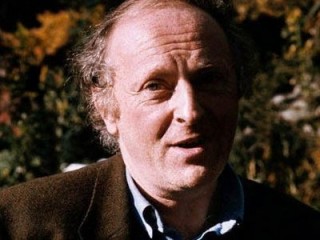
Joseph Brodsky biography
Date of birth : 1940-05-24
Date of death : 1996-01-28
Birthplace : St. Petersburg, Russia
Nationality : Russian-American
Category : Famous Figures
Last modified : 2011-06-14
Credited as : Poet and essayist, Nobel Prize,
0 votes so far
He was born in Leningrad (now St. Petersburg, Russia) and survived the Nazi siege of Leningrad as a child. His father was a military photographer, his mother a secretary, and he quit school at the age of 15, bored with omnipresent portraits of Lenin and classes that felt like mere indoctrination. He worked without enthusiasm as a mill machine operator, a boiler room stoker, and in a morgue, and began writing poetry as a young man. He taught himself to read and write in foreign languages, ostensibly so he could work as a translator, but more to the point so he could read the writings of banned Western authors.
He was twice briefly committed to psychiatric institutes, a common Soviet response to nonconformity, and he was charged as a laggard at the age of 24. "Who enrolled you in the ranks of poets?" the judge asked the high school drop-out, and Brodsky replied, "Nobody. Who enrolled me in the ranks of mankind?" He was convicted of shirking his "constitutional duty to work honestly for the good of the motherland", and sentenced to five years at an Arctic labor camp. Complaints from International PEN and pleas some of the world's more distinguished literary figures, including Anna Akhmatova and Jean-Paul Sartre, saw his sentence commuted after a year a half, but his harassment continued after his release.
Most of Brodsky's work was published as samizdat in the USSR or first published abroad, and he was not allowed to travel freely, nor to marry his lover, the mother of his son. In 1972 he was expelled from the Soviet Union, becoming effectively a man without a nation. He immigrated to America, where he became a citizen in 1977, and lived and taught for the rest of his life. When he grew especially homesick, he occasionally drove to the northlands of Canada, where he could receive staticky broadcasts from Russian radio stations.
He won a MacArthur "genius" grant in 1981, the Nobel Prize in 1987, and served as the poet laureate for the US Library of Congress from 1991-92. In his Nobel lecture he proposed that totalitarian states could not exist if leaders were selected by what books they had read. "I'll just say that I believe — not empirically, alas, but only theoretically — that, for someone who has read a lot of Dickens, to shoot his like in the name of some idea is more problematic than for someone who has read no Dickens."
He was the youngest Nobel laureate in Literature, only 47 years old when the honor was presented, but he was a heavy smoker, and suffered fading health. He grew too frail to easily travel overseas, so even after the Soviet Union collapsed in 1991 he never visited Russia. He died of a heart attack in his Brooklyn apartment in 1996, and was buried in Venice, Italy.
Author of books:
Selected Poems (1973, poetry, trans. George L. Kline)
A Part of Speech (1980, poetry)
History of the Twentieth Century (1986)
To Urania (1988, poetry)
Less Than One (1986, essays)
Watermark (1992, essays)
On Grief and Reason (1996, essays)
So Forth (1996, poetry)
Collected Poems in English (2000, poetry)
Nativity Poems (2001, poetry)
















